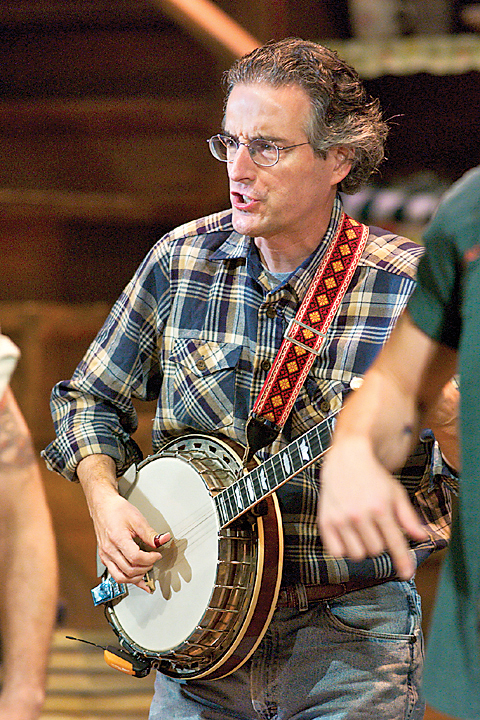For many theater people, the goal is to get to Los Angeles or New York. Rex Knowles did both for a time, writing, producing and acting in dozens of plays and musicals, often with his wife of 41 years, Sherry Landrum.
Both were teaching at the New Actors Workshop in New York City when Chattanooga State Community College president Dr. Jim Catanzaro asked them to consider moving to Chattanooga to teach in the school's theater department.
They jumped at the chance and are now in their ninth year here, teaching everything from screen- writing to acting, with an emphasis on improvisation.
Several graduates have gone on to find work in Los Angeles, New York and Atlanta. Others are continuing their studies elsewhere.
Knowles has appeared in television commercials, movies and on such television shows as "M*A*S*H," "Starsky & Hutch" and "The Dukes of Hazzard." Onstage, he produced the musical "That Other Women's Child," which was co-written by Chattanoogans Landrum and George S. Clinton. The show was performed in 2008 at the New York Musical Theatre Festival.
Q: What all are you involved in right now?
A: I teach primarily improvisation in the Professional Actor Training Program. I also do seminars in screenwriting and producing. I'm doing those this semester. I help out and produce the shows in the musicals and the plays that we do and the Friday night improv we do. When we have the summer theater festival, I help out with that with the Chattanooga State Repertory Theatre.
Q: How do you teach improv?
A: You can't teach content, but there is a technique for improvisation; and if you can embrace that technique, it maximizes the ability to be spontaneous in the moment, have a good time, be honest, genuine, trust and all that stuff. I teach the technique and get the students into that space, but there is something else that happens when they get it and get in the zone, which I always claim I can't teach.
It really is getting up there and letting anarchy reign. There are specific guidelines.
Q: The key is listening, right?
A: Yes. In scripted pieces, you have to do that, too. George Morrison, who is our mentor, said there is no connection between acting technique and improvisational technique. I think there is and each informs the other.
What I like about the acting technique is it brings a depth to the improvisation so you are not just trying to be funny or ballistic. You are listening not only to your partner but to yourself, to the audience, to the environment.
Q: We try to tell that to our reporters, especially young reporters. They sometimes have their 10 questions and if they are not listening, they may miss an unexpected answer.
A: Yes. Exactly. For awhile, up in New York, a student of ours was David Dean, who tried the Agent Orange case. He studied with us and at one time wanted to be an actor. He found the work so helpful that he would send his young turk lawyers to us so that they would learn to listen.
Q: How big are the classes?
A: We average about 18 students now. That is a good number.
Q: Are you teaching it as a building block for acting overall or are you teaching it as something they could go out and make a living doing improv?
A: We do the improv based on the belief that an actor today has to be trained in both disciplines -- American Method Training and improv. You have to have both we believe.
Contact Barry Courter at bcourter@timesfreepress.com or at 423-757-6354.

